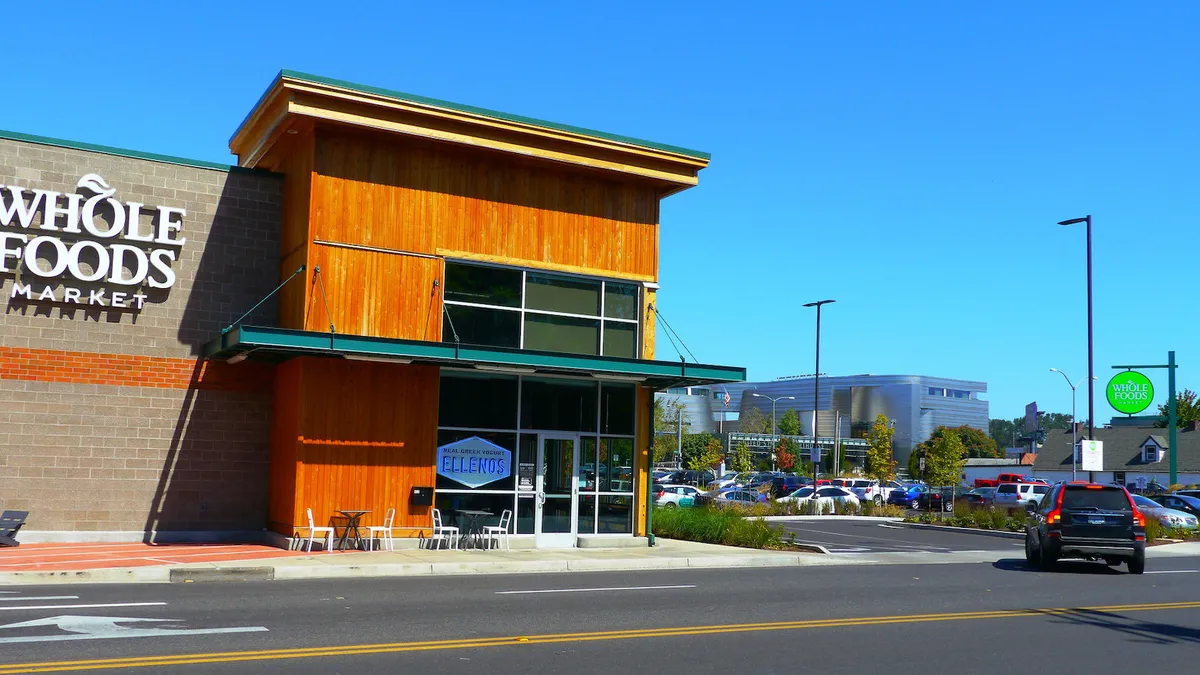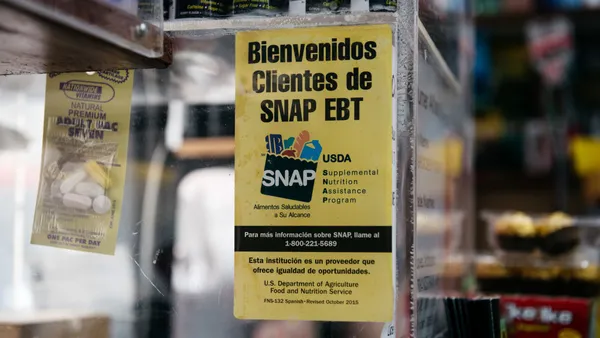Dive Brief:
- Whole Foods ranked first among 33 brands for its COVID-19 health and safety practices in the second report this year from research firm Ipsos based on mystery shopper visits to more than 5,700 U.S. stores. The grocer also took the top spot in the first version of the Ipsos index, which came out in June.
- Employees at 76% of Whole Foods stores were observed to be actively cleaning high-touch areas compared to an industry average of 59%, and all Whole Foods employees and 98% of shoppers were found to be wearing masks. The grocer also got the highest industry scores for its health and wellness signage, availability of sanitizing options and barriers enforcing social distancing in stores.
- Trader Joe’s, ShopRite, and Costco also received high marks in the index, which measured restaurant and financial services locations, as well.
Dive Insight:
Surveying 2,000 Americans this spring, Ipsos found that 62% said that they would stop shopping at a retailer if they were not taking health and safety seriously. For essential businesses such as grocery stores, the novel coronavirus pandemic has made health and safety precautions crucial to their operations.
As some grocery brands have relaxed certain precautionary measures in recent weeks — Publix nixed its one-way aisle policy at most stores and retailers in some locales are once again accepting reusable bags — mask-wearing has become more ubiquitous since Ipsos first tracked grocery stores’ COVID-19 precautions in the spring. In mid-July, the two largest U.S. grocery providers, Kroger and Walmart, both issued requirements that all customers wear masks in their stores, and were quickly followed by all major competitors.
Enforcement of social distancing at grocery retailers has also continued into the late summer, with 99% of Whole Foods stores having “some sort” of social distancing enforced, like shutting down every other checkout stand or closing self-service stations. Trader Joe’s scored highest among all 33 brands observed by Ipsos for its enforcement of distancing, while Costco topped the chart for installation of physical social distancing barriers.
Safety measures like these, including the availability of hand sanitizer and visible restroom cleaning schedules, are top drivers for getting shoppers to return to stores, according to Ipsos.
Despite high Ipsos rankings, Whole Foods’ and Trader Joes’ records on health and safety during the pandemic have not been without controversy. In May, hundreds of workers at Whole Foods stores, as well as Instacart and Shipt, called out sick in a coordinated strike over inadequate safety protections. Amazon’s unlimited unpaid time off policy for workers, including Whole Foods employees, ended in April. Trader Joe's employees have made attempts to unionize since the pandemic's onset, citing reports of stores being kept open despite confirmed positive cases among its staff.
A coronavirus outbreak at a Washington, D.C. Whole Foods in April which saw 16 employees infected according to the New York Times proved that even with strict social distancing measures in place and in cities which are not active hot spots, the risks to grocery store employees can be significant. Between late March and early August, 130 grocery workers died from COVID-19 and more than 8,200 have tested positive for the virus, according to The Washington Post.













